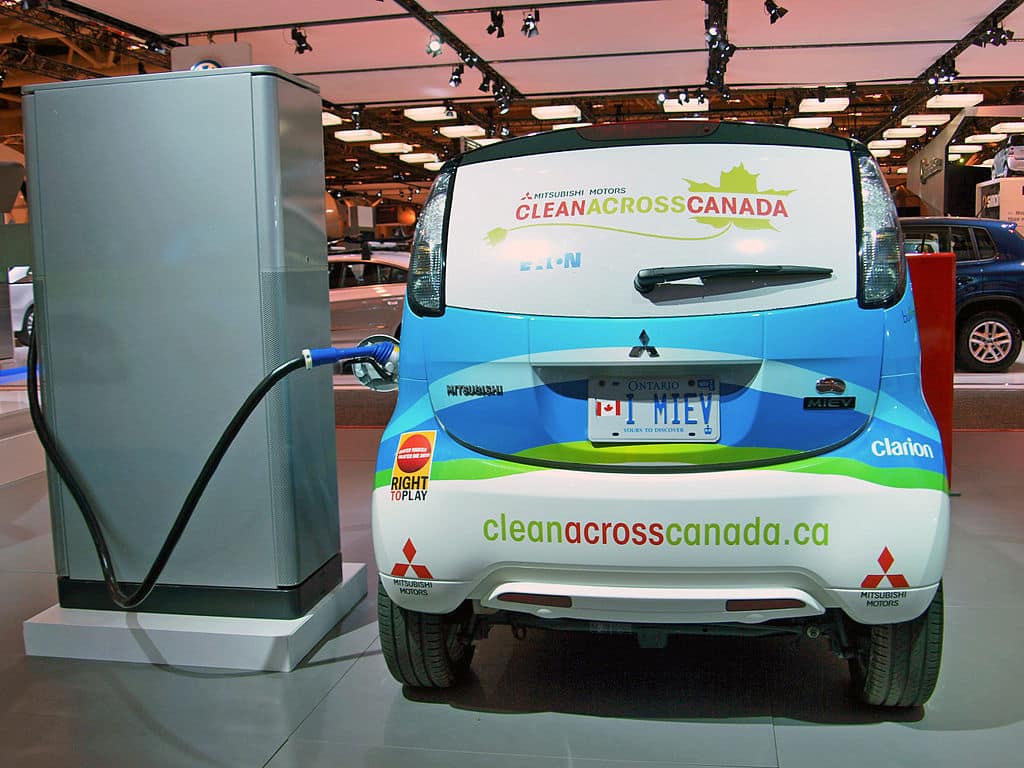Canada Expected to Announce All New Cars Must Be Zero Emissions by 2035
Canada may accelerate its efforts to curb greenhouse gas emissions by announcing that all new cars must be zero-emissions by 2035. This declaration, expected to be officially announced later this week, comes from a high-ranking government source. The regulations, named the Electric Vehicle Availability Standard, are a crucial step towards the global trend of electrification. By ensuring a supply of electric vehicles (EVs) for the Canadian market, the government aims to decrease wait times for consumers interested in purchasing an EV. The government is also working to reduce other EV adoption barriers. This proclamation corroborates earlier media reports and signifies Canada’s commitment to a more sustainable future.
Devashish Paul, CEO & Founder of Canadian company BluWave-ai, said: “The 2035 100% EV sales mandate by the Federal Government of Canada expected in December 2023 sets a path for electrified transportation in Canada. For every 1M EV’s added to Canadian transport networks roughly $4B is saved in imported oil. Just in Ontario alone we have 8 million vehicles on the road today. This presents a substantial economic and decarbonization opportunity with 12 years to make it happen. There will be a big transition between the internal combustion engine (ICE) majority on the roads and EV majority vehicles on the road. For the clean energy transition industry in Canada it is an exciting moment in Canadian history”.

British Columbia and Quebec Already Have Zero Emissions by 2035 Sales Targets
The Canadian provinces of British Columbia and Quebec have been pioneers in this arena, already having the same regulated sales targets in place. Zero-emission vehicles – an umbrella term that includes battery electric, plug-in hybrid, and hydrogen fuel cell models – are mandated to constitute 20% of all new car sales in 2026. The percentage is set to triple by 2030, reaching 60%, and by 2035, it is expected that 100% of all new cars sold will be zero-emission vehicles.
The International Energy Agency (IEA) offers a global perspective on this trend. “A total of 14% of all new cars sold were electric in 2022, up from around 9% in 2021 and less than 5% in 2020,” said IEA. Currently, electric vehicles (EVs) are exhibiting a promising increase in demand. Projections by the IEA suggest that by the end of the decade, EV sales are likely to constitute between 40% and 45% of the market.
Despite earlier reports this year suggesting that Electric Vehicles (EVs) were languishing on dealer lots, actual sales figures reveal a sizeable and growing demand for electric cars and SUVs both in Canada and globally. Statistics Canada’s registration records indicate that one in every eight new vehicles sold nationwide is either electric or a plug-in hybrid. In provinces that already have regulations requiring dealers to sell a certain proportion of EVs, these numbers are even higher. In Quebec, one in every five new cars is electric. In British Columbia, EVs constitute nearly a quarter of all new car sales.
In 2022, a comprehensive investigation published by The Star discovered that the wait times for Electric Vehicles (EVs) in Toronto were substantially longer compared to other parts of Canada. This led to a scenario where dealers were persuading potential buyers to opt for gas-powered vehicles, which had considerably shorter wait lists. The situation, unfortunately, doesn’t seem to have improved over time, as per anecdotal evidence. People continue to wait for a year or even longer to take delivery of their new electric vehicle. This raises pertinent questions about the infrastructure and supply chain efficiency of EVs in Toronto and how it can be enhanced to meet the growing demand.
Joanna Kyriazis, Director of Public Affairs at Clean Energy Canada, a B.C.-based think tank, said: Canadians drive the least fuel-efficient cars in the world, and they’ll continue to do so until they’re offered affordable zero-emissions vehicles. EVs are one of the best ways for Canadians to save on their energy bills.”
Kyriazis cited a recent analysis proving EVs are much cheaper to charge than a gas car is to fill up. The analysis showed owners would end up saving more than $33,000 over the course of 10 years.
Canada’s BluWave-ai is Leveraging Artificial Intelligence To Optimize the Integration of EVs into the Power Grid
With the accelerating adoption of electric vehicles (EVs) in neighborhoods, distribution utilities are faced with the challenge of supporting the increased demand from EV chargers in customers’ homes and businesses. These utilities need to better plan the infrastructure required by identifying priority areas where peak demand from charging could overload the system. The options available are either implementing costly capital upgrades or delaying and reducing the need by implementing non-wires alternatives.
For a more comprehensive understanding of these related problems and potential solutions, we suggest downloading the Whitepaper titled “How AI Will Leverage Mass Adoption of EVs to Help, Not Break the Electric Grid” from EV INfo.net and BluWave-ai. This resource explores in-depth how artificial intelligence can be utilized to optimize the integration of EVs into the power grid, effectively managing the transition to high EV penetration. It provides critical insights on how AI-enabled non-wires alternatives can improve distribution utilities’ capacity for increased EV penetration. The program is planned for worldwide utilization, beginning in Canada.
“With OEM’s being pushed by government all around to the world to offer a wider breath of EVs from now to 2035 and the potential for a large number of EVs to stress the grid, BluWave-ai is offering its EV Everywhere AI enabled grid wide charging product to use all the EVs as utility scale battery to offload more wind and solar into the EVs. Each EV represents in the range of 125 kWh weekly charging, and as such every 1M EVs represents a massive 125GWh of utility scale weekly storage if managed well to help the grid and not stress it with this massive emerging influx of EVs. All of this with software while minimizing grid upgrades,” said Devashish Paul, CEO & Founder of BluWave-ai.
